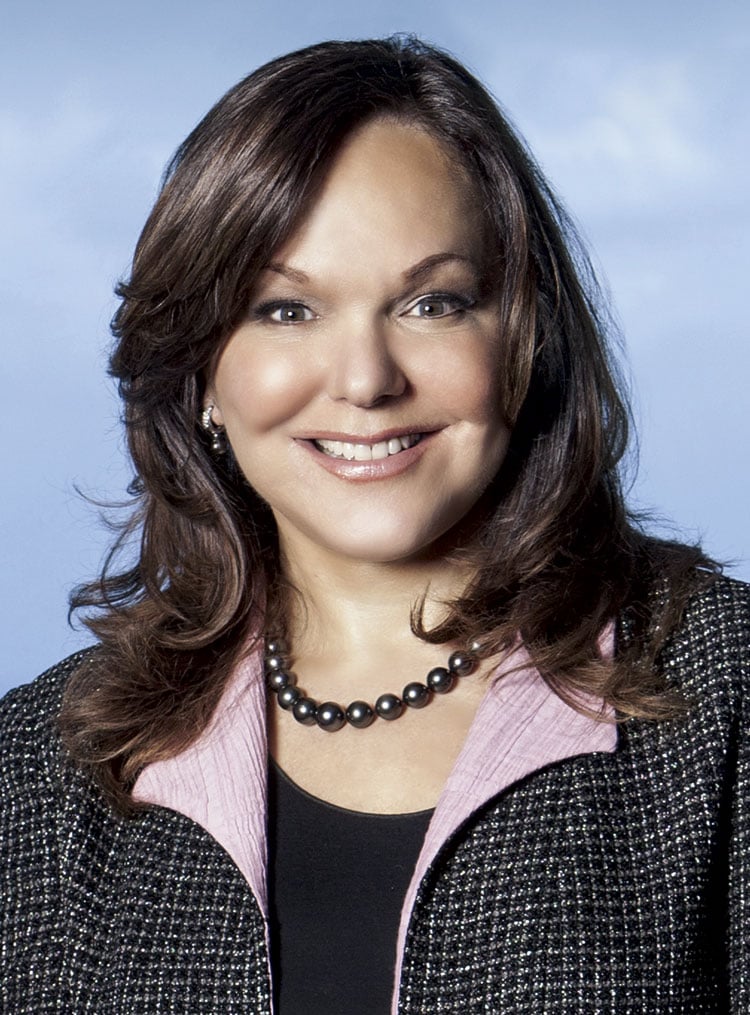Champions of the rule of law

Photo of Hilarie Bass courtesy of the Office of the President
President Dwight Eisenhower, when he first proclaimed a national Law Day in 1958, said that, “The clearest way to show what the rule of law means to us in everyday life is to recall what has happened when there is no rule of law.”
Eisenhower was referring to the totalitarian horrors that prompted World War II, but today the lessons of history are just as relevant.
The rule of law is an essential element of a civilized society. And promoting the rule of law—at home and abroad—is one of the ABA’s four core goals. It is at the center of everything the association does.
For instance, by standing up for judicial independence, we promote the concept of impartial justice for people throughout the world. By advocating for legal services for the poor, the ABA gives a voice to the powerless. And by reviewing the qualifications of judicial nominees, the association tries to ensure that only the best and fairest jurists receive lifetime appointments to the bench.
Our dedication to the rule of law does not stop at our borders. Gaps in the rule of law exist around the globe. Corruption, marginalization and human rights abuses in other countries drive extremism, conflict and mass migration, the effects of which we feel at home.
Weakness in the rule of law abroad also affects U.S. commercial interests, creating instability and risk for U.S. foreign investment and supply chains and an uneven competitive playing field for U.S. workers.
The ABA’s Rule of Law Initiative (ABA ROLI) has made a profound impact on the world and, in doing so, has aided American lawyers. Its efforts include:
• Combating violent extremism: With military responses to terrorism proving insufficient and counterproductive, attention has turned to preventive approaches that address the underlying grievances that can breed extremism. These grievances can include corruption, disenfranchisement and violations of human rights, which stem from gaps in the rule of law. Legal responses can provide peaceful solutions and avert frustration and extremism before it festers.
I recently visited Morocco, where ABA ROLI programs focus on educating citizens about their rights and remedies under a 2011 Constitution and facilitating civil society engagement with local government. Giving citizens a chance to participate in their government is a strong antidote to extremism. Another ABA ROLI program in Libya is giving citizens a stake in the ongoing constitutional reform process.
• Forced migration: As the world strains at the record 60 million people forced to flee their homes, the ABA is advancing rule-of-law responses in countries immigrants are leaving, traveling through and making their new homes.
Many ABA ROLI programs address the violent crime and human rights violations at the root of the mass migration. In the Democratic Republic of Congo, ABA ROLI works to bring justice to victims of sexual violence, a residue of that country’s two decades of conflict. In El Salvador and Guatemala, ABA ROLI helps develop the capacity of law enforcement and the judiciary to curb murderous gangs that have forced hundreds of thousands to flee.
In transit countries, such as Turkey, ABA ROLI is working with lawyers to educate Syrian refugees about their legal rights to housing, health care and schooling. In the United States, a destination country, the ABA’s Commission on Immigration works through its ProBAR program in Texas to provide legal representation to immigrants and asylum-seekers.
• Labor rule of law: The ABA demands that labor laws are compliant with international standards. In Mexico, ABA ROLI is developing a new program that will help establish labor law clinical programs at three leading Mexican law schools.
The ABA does this work around the world with a mix of pride and modesty—pride in the U.S. rule of law tradition but cognizant that our system is neither perfect nor always a perfect fit for other countries. There is no one-size-fits-all. Rather, the rule of law is a system of checks and balances that needs constant testing, nurturing and strengthening.
The ABA has a critical role in developing and sustaining the rule of law. We continue to build on our experience to share and develop together with our justice sector colleagues around the world and ensure that the rule of law thrives.
Sidebar
Paris in the Spring
Please join me June 7-10 in Paris to celebrate the 70th Anniversary of the Universal Declaration of Human Rights, with incredible CLE and amazing social events. For more details, visit ambar.org/2018ParisSessions.
Follow President Bass on Twitter @ABAPresident or email [email protected].



